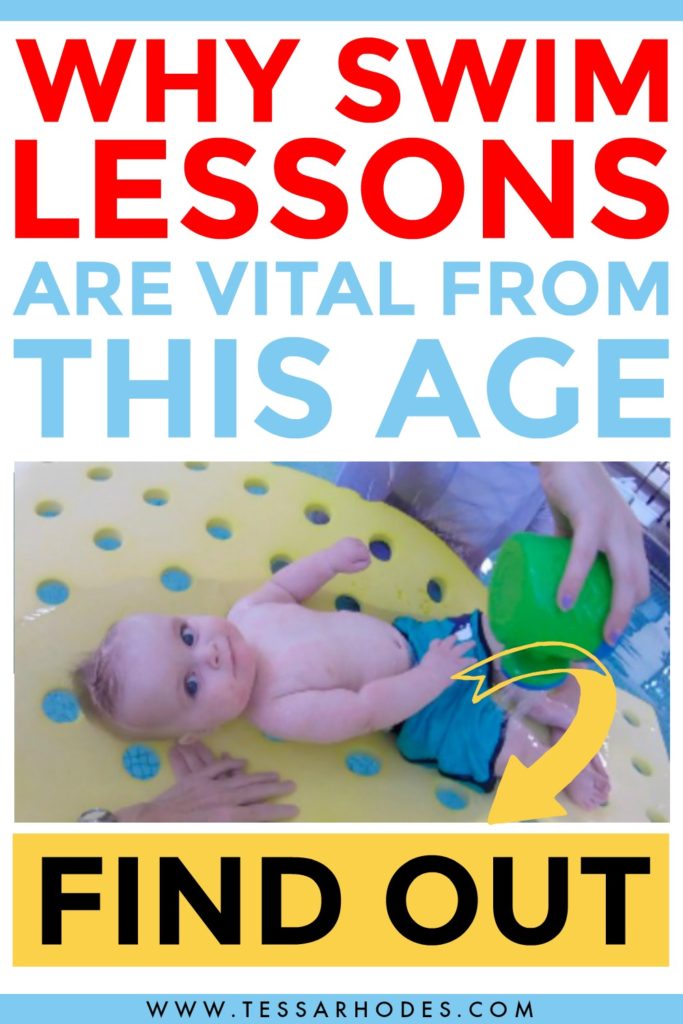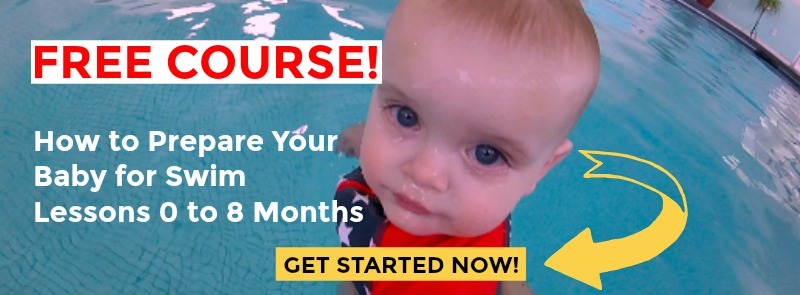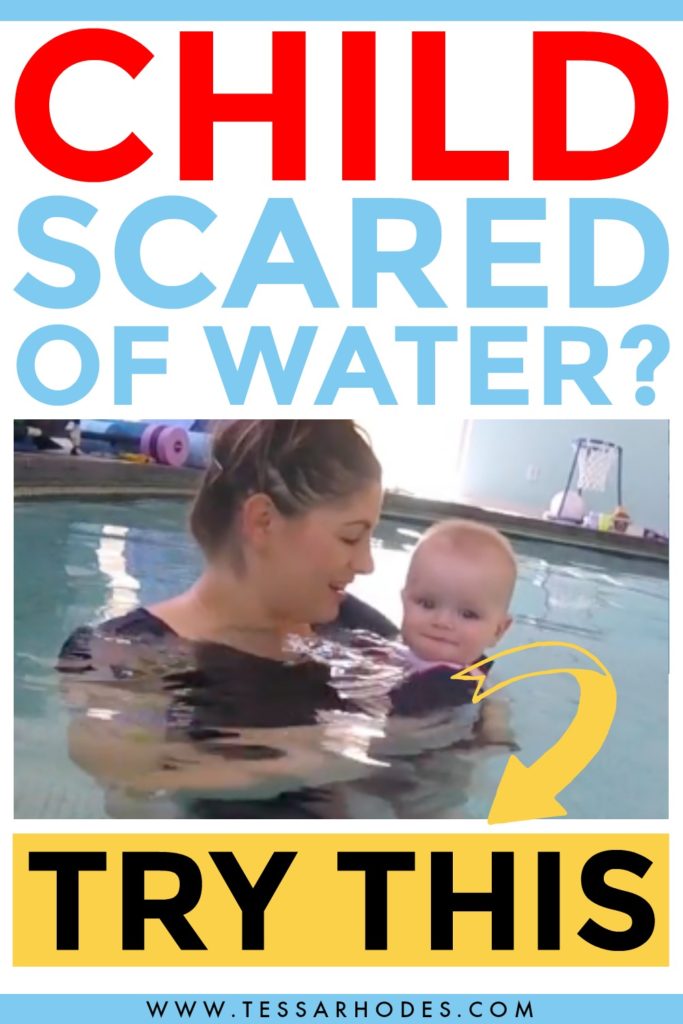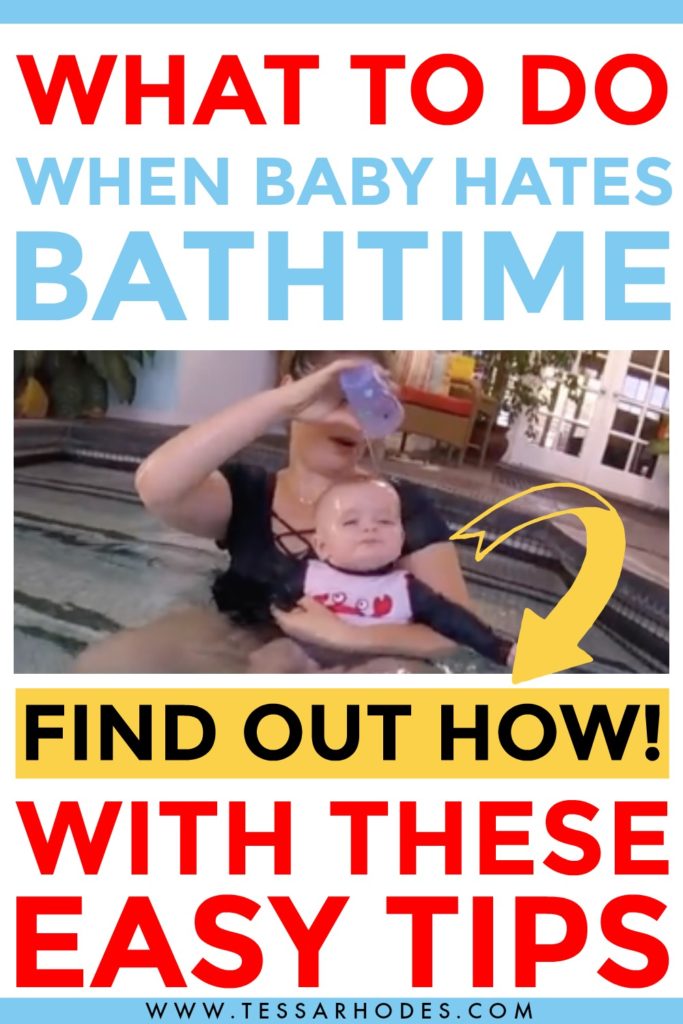Start with bathtub swim lessons from the day you bring your baby home from the hospital. A newborn has recently emerged from a comfy place of residence, submerged in liquid for nine months… What Is the Best Age to Start Swimming Lessons?

Maintain that level of comfort that your baby already feels around water. To do this, pour water over his head during every bath. For more details on this, take my free online course entitled, How to Prepare Your Baby for Swim Lessons 0 to 8 Months. You’ll learn how to condition your baby to hold his breath and much more. ⬇️. So

What Is the Best Age to Start Swimming Lessons in a pool?
The answer is four months of age. At 4-months-old, your baby has decent head control, and as a parent, by the time your baby is 4-months-old, you are a lot more comfortable with handling your little one on land, which transfers nicely to the pool too. So
Swimming Lessons Makes Your Baby Smarter
Babies’ earliest learning happens through their senses of touch, taste, sight, sound, and smell. It’s how they experience new awareness, but only if exposed to appropriate stimuli. And what could be a better way of stimulating the sense of touch than being completely immersed in water?

All of the activities that typically make up a swim lesson arouse the senses. It can be as simple as reaching for age-appropriate toys of different colors and textures. This activity is one great way to stimulate sight and touch and even taste since the toys will most certainly make a beeline for the mouth. To learn how to teach your baby to swim yourself, enroll in this course entitled Teach Babies to Swim 4 to 8 Months.
Your Baby Will Never Develop a Fear of Water
The main goal in a parent/tot swim class is to develop a love of the water in your baby. So if you give your infant the opportunity to early water exposure, he’s going to not only love the water, but he will also respect it. So
Swim lessons provide babies with many opportunities to experiment and learn from their mistakes. They learn the difference between deep and shallow water and thereby understand their boundaries and limitations, making it less likely that they would put themselves in a dangerous situation.

The 4-Month-Old Is a Delight to Teach
Young babies are oblivious to any dangers that may be surrounding them, and it is for this reason that makes teaching a 4-month-old effortless. It is at 6 or 7 months that many babies first encounter fear.
If you are exposing your baby to water for the first time at six+ months of age, don’t worry. I have found that most of these babies are just as easy to teach as their younger counterparts, especially if they’re not handed off to strangers.
And introducing the 0 to 5-month-old to back floating is easy. It becomes an issue once babies can sit independently on land, however. They like it about as much as they like having their diapers changed, which isn’t much in case you didn’t pick up on the nuance.
To learn about introducing back floating to your infant, enroll in this course. It’s FREE. ⬇️

Instill Love and Respect, Not Fear
I implore you to develop a love of the water in your baby. Teach him to respect it, not fear it. You’re already exposing your baby to land and teaching him everything that is required to someday navigate the soil beneath him. Just as important, if not, more so, is the ability to become as independently mobile in water.
Most of my preschool-aged students who first enroll in swim lessons with me are not comfortable with putting their faces in the water. They need to get past this fear of water on the face before we can progress any further in the program. And it can take several, if not many private lessons before they’re ready to take the next step.
So, don’t let this happen to your little one. Get your baby started on the right road to love and respect for water now, and you’ll save a bundle on swim lessons in the long run. Start now by enrolling in my FREE course. What’ve you got to lose? It’s FREE! See you there!


